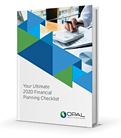How Do U.S. Elections Affect Stock Market Performance?
By Jesse Giordano, CFP® | September 20, 2024With the presidential election quickly approaching, it’s safe to say this has been a campaign season unlike any other. Even during less newsworthy election years, investors come to us asking how the election might impact the stock market and if they should be preparing their portfolios now for volatility ahead.
Below we’re exploring how the markets have historically reacted to presidential election campaign seasons and outcomes, and what you should be doing (if anything) to prepare.

What Economic Indicators Are Investors Focused on?
During election years, hopeful candidates hit the campaign trail and shine a spotlight on some common economic indicators like:
- Gross Domestic Product (GDP): Used as a key indicator of our country’s economic health, GDP measures the total market value of goods and services produced in the U.S. The higher the GDP, the “healthier” our economy is.
- Unemployment rates: Represent the percentage of people in the labor force who are actively seeking work but remain unemployed. High unemployment typically signals economic challenges like slow business growth or sector disruptions, which can lead to reduced consumer spending, lower production of goods and services, and increased government spending on social programs.
- Inflation: For the last several years, inflation has certainly been a hot topic that’s impacted just about everyone. While it’s finally cooled a bit from its 2022 record highs, it still remains higher than what we were used to in the prior decade or so. This increase in inflation has led to higher interest rates, making borrowing more expensive for consumers and businesses.
In addition to bringing more attention to these economic indicators, candidates give voters a glimpse into the types of policies or changes they wish to enact in office. Some common areas of focus include:
- Tax reform or incentives
- Healthcare costs
- Social Security
- Wages
- Investments in green energy or infrastructure
Of course, you or other investors may not agree with the policies laid out by a specific candidate. In that sense, elections can create both economic uncertainty and optimism.
Stock Market Behavior During Election Years
The big question is, are stock markets impacted by election years?
This is a tough question to answer, considering just how many factors can actually influence market movements.
Take 2020, for example. Yes, it was an election year. But it was also a year marked by a global pandemic and worldwide supply chain shortages. To say the volatility experienced in 2020 was purely election-related would be incorrect.
That being said, there’s some evidence that the markets may generally experience more short-term volatility during election years. The S&P 500, for example, averages lower total returns during presidential election years than non-election years—11% versus 11.6%, respectively. Studies have also found that during election years, market volatility was highest in the one to three months leading up to the first Tuesday in November (Election day).1
As we mentioned earlier, candidates will have certain talking points throughout their campaign, which can impact investor confidence in the performance of future sectors such as healthcare, technology, infrastructure, and energy. Again, there may be some correlation between sector volatility and the presidential election, but historically speaking, this volatility is short-lived.2
Key Considerations for Investors
Should you disregard your long-term investment strategy because of the presidential election? The answer is, probably not. Rather, this is a good time to focus on the fundamentals of your investment plan and remember that short-term volatility has historically always resolved itself.
Stay focused on your long-term goals, maintain an appropriate level of diversification, and keep informed on what’s going on in the markets—but avoid making hasty or impulsive decisions based on short-term movements.
I encourage you to reach out to your financial advisor prior to the election, so you can feel confident in your portfolio no matter the outcome. Feel free to contact our team and schedule a time to talk that’s convenient for you.
Sources:
Be a Smart Investor
Stay up-to-date with industry-leading information and news delivered straight to your inbox.
Get our timely insights delivered to your inbox (Blog)
Please remember that past performance may not be indicative of future results. Different types of investments involve varying degrees of risk, and there can be no assurance that the future performance of any specific investment, investment strategy, or product (including the investments and/or investment strategies recommended or undertaken by Opal Wealth Advisors, LLC [“OWA]), or any non-investment related content, made reference to directly or indirectly in this commentary will be profitable, equal any corresponding indicated historical performance level(s), be suitable for your portfolio or individual situation, or prove successful. Due to various factors, including changing market conditions and/or applicable laws, the content may no longer be reflective of current opinions or positions. Moreover, you should not assume that any discussion or information contained in this commentary serves as the receipt of, or as a substitute for, personalized investment advice from OWA. OWA is neither a law firm, nor a certified public accounting firm, and no portion of the commentary content should be construed as legal or accounting advice. A copy of the OWA’s current written disclosure Brochure discussing our advisory services and fees continues to remain available upon request or at www.opalwealthadvisors.com. Please Remember: If you are a OWA client, please contact OWA, in writing, if there are any changes in your personal/financial situation or investment objectives for the purpose of reviewing/evaluating/revising our previous recommendations and/or services, or if you would like to impose, add, or to modify any reasonable restrictions to our investment advisory services. Unless, and until, you notify us, in writing, to the contrary, we shall continue to provide services as we do currently. Please Also Remember to advise us if you have not been receiving account statements (at least quarterly) from the account custodian.



